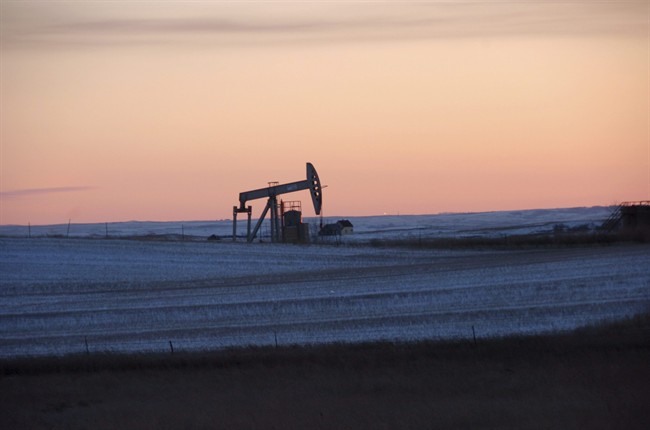DALLAS – OPEC now sees oil prices rising more slowly over the next few years than it had expected, as the oversupply of crude takes longer to work off.

The Organization of the Petroleum Exporting Countries said Tuesday it expects crude will rise $5 a year to $60 per barrel by 2020. A year ago, OPEC forecast that oil would hit $80 by 2020.
Brent crude, which is used to price international oils, fell 11 cents to $46.04 a barrel on Tuesday.
READ MORE: Oil prices, loonie rise after Hillary Clinton’s FBI election boost
OPEC cited many factors that could limit energy demand, from slower growth in China to higher household debt. The cartel expects global economic growth of 3.4 per cent over six years, down from a 3.6 per cent prediction a year ago.
At the same time, OPEC said, the oil industry was surprised by the ability of producers in North America to keep pumping even as prices fell, maintaining crude supplies high.
WATCH: Protests against Dakota access oil pipeline increasing

The forecast was contained in OPEC’s annual oil outlook and came just three weeks before its oil ministers are scheduled to meet to complete a September agreement on slightly reducing production to drive up prices.
It won’t be easy for OPEC to nail down a price-boosting deal.
OPEC nations have been pumping record amounts of crude this fall even though prices are less than half what they were in mid-2014. Iran, Libya and Nigeria have reportedly argued to be exempted from production cuts, which could put pressure on Saudi Arabia to shoulder more of the reduction. And it’s unclear whether any OPEC pullback might be offset by production from countries outside the cartel.
READ MORE: BC lays out West Coast spill response needs
Separately, the U.S. government updated its short-term outlook and said that the recent decline in domestic oil production may not be as severe as expected just a month ago.
The Energy Department raised its forecast of U.S. production for both this year and 2017, as drillers respond to higher crude prices. Still, output won’t match 2015, which was the biggest year for U.S. production since 1972.
The Energy Department predicted that domestic production will top 8.7 million barrels per day next year. That’s 140,000 more barrels per day than the department estimated just a month ago. Forecasters also raised their estimate of 2016 daily oil production by 110,000 barrels to more than 8.8 million barrels.
That’s still below 2015’s output that hit 9.4 million barrels per day.
The rising forecast is because this year’s rebound in oil prices has translated into more drilling, said Anthony Starkey, an energy analyst for S&P Global Platts. The number of active oil rigs in the U.S. has risen by more than 100 since oil prices plunged below $30 a barrel early this year. About 20 rigs have been added in just the past month.
“Most analysts have been revising their production numbers higher as rig activity increases and the outlook for prices has improved with the rhetoric from OPEC that they will do something to help balance the market” when cartel members meet later this month, Starkey said.



Comments